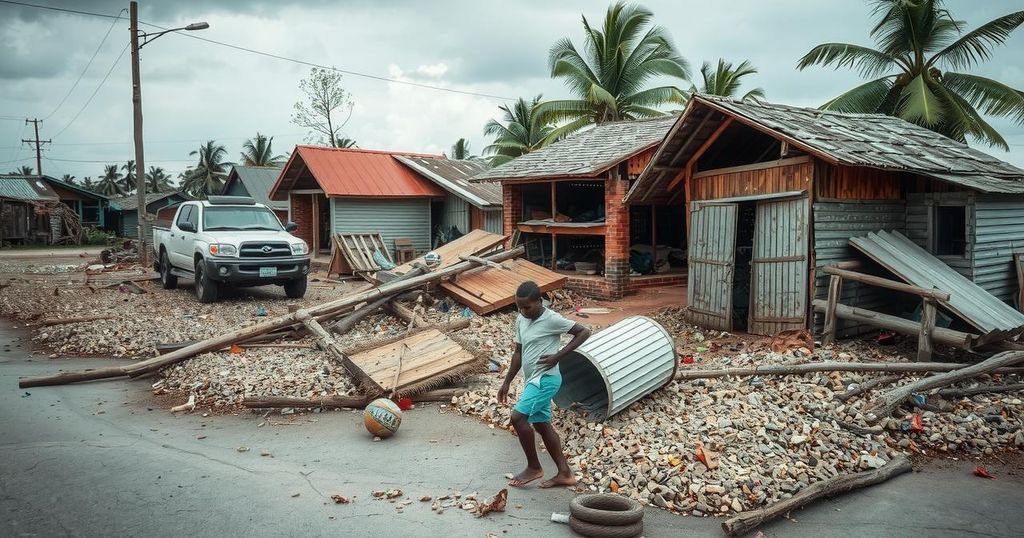Cyclone Chido’s Destruction in Mozambique: UNHCR Responds to Humanitarian Needs
Cyclone Chido severely impacted northern Mozambique, displacing thousands and destroying homes and infrastructure. UNHCR is providing emergency assistance and collaborating with local partners to address the humanitarian crisis. The cyclone’s effects extend to neighboring regions, underscoring the need for robust disaster response and preparedness measures in light of potential future weather-related challenges.
Cyclone Chido recently struck northern Mozambique, bringing with it devastating rains and winds that caused extensive destruction in the Cabo Delgado and Nampula regions. This natural disaster resulted in significant displacement, affecting thousands of individuals and creating challenges for relief efforts in areas already grappling with a high number of internally displaced persons. The UN Refugee Agency (UNHCR) has taken immediate action by providing essential assistance to those affected, while also actively collaborating with the Mozambican government and various humanitarian partners. They have already delivered emergency relief supplies, such as blankets, sleeping mats, and temporary shelter materials, to over 2,600 displaced individuals at the main accommodation center in Pemba.
Initial assessments indicate that approximately 190,000 people are in dire need of humanitarian aid, with reports of nearly 10,000 homes destroyed and 33 schools damaged by the cyclone. In certain areas, destruction is so severe that few houses remain intact, exacerbating the vulnerability of communities already suffering from years of conflict and economic difficulties. As families struggle to recover, Cyclone Chido poses an additional layer of hardship for those attempting to rebuild their lives.
UNHCR’s proactive approach included pre-positioning emergency supplies before the cyclone and disseminating disaster preparedness information through various media channels. Notably, in Nampula, specific measures taken to foster climate-resilient housing appear to have minimized damage in refugee camps. The impact of Cyclone Chido extended beyond Mozambique, affecting Mayotte and Southern Malawi, where local infrastructure also sustained significant harm.
Authorities are apprehensive that Cyclone Chido may mark the beginning of a challenging rainy season, one that has a history of breeding cyclones and floods that disproportionately impact vulnerable populations. The situation is critical as the need for ongoing humanitarian assistance intensifies, and UNHCR remains committed to supporting affected communities despite dwindling resources.
Cyclone Chido serves as a reminder of the vulnerability of certain regions to climatic events, particularly in southern Africa. With its destructive force, the cyclone has revealed the ongoing challenges faced by communities already contending with pre-existing social and economic instability. The region, which has been afflicted by years of conflict and ongoing crises, requires immediate and sustained humanitarian response to mitigate disaster impacts. The UNHCR plays a vital role in providing assistance to those affected, emphasizing the need for international cooperation in disaster preparedness and management.
In summary, Cyclone Chido has caused immense destruction in northern Mozambique, displacing thousands and intensifying the urgent need for humanitarian assistance. With the UNHCR actively involved in delivering relief and working on long-term solutions, the focus now shifts to rebuilding efforts and ensuring continued support for vulnerable populations throughout the region. As weather patterns become increasingly unpredictable, the commitment to aid those severely impacted must remain unwavering.
Original Source: www.unhcr.org




Post Comment